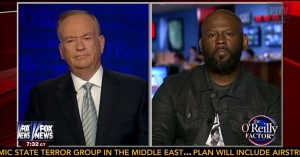
A new study conducted by the Pew Research Center shows large differences in media habits between liberals and conservatives.
The study, published in October, is part of a year-long effort to understand political polarization in the U.S. and was compiled through a survey of nearly 3,000 web respondents. It covers a range of topics, including how individuals choose and follow news sources, social media use and tendencies in political conversations among family and friends.
There is a stark contrast between preferred news sources for liberals and conservatives. The study found that, among consistent conservatives, nearly half cite Fox News as their main source, as compared to the less unified main sources of consistent liberals. Professor Richard Davis, who teaches political science at BYU, believes the difference may have to do with Fox News’ unique branding.
“I think it is because Fox News has acquired the brand of the conservative news outlet,” Davis said. “Those who identify as liberal see a broader array of choices and use them since no one outlet serves as ‘the’ liberal outlet for news.”
Only 12 percent of consistent liberals cited MSNBC, widely considered a liberal outlet, as their primary news source.
The survey also asked respondents to rate their level of trust toward 36 news sources, of which, sadly, The Daily Universe was not included. Consistent conservatives trusted only eight of the 36, whereas consistent liberals trusted 28, with NPR and BBC ranked highest. The responses could be a reflection of the sentiment that the mainstream media leans liberal.
“Conservatives are distrustful of the broad array of media sources on ideological grounds,” Davis said. “Conservative news outlets take a broad brush approach with critiques on the ‘mainstream’ media as liberal.”
BYU students from both sides of the political spectrum acknowledged the findings from the study but offered different explanations for the underlying causes. Matthew Bell, president of the BYU College Republicans, believes conservatives generally choose Fox News because it offers a different perspective to an otherwise liberal-leaning media.
“Yes, I still read the New York Times, and I still watch CNN here and there,” he said. “But I have to watch Fox News so that, I feel, I can still be rooted and get more balance.”
Nicol Pavez, co-president of the BYU College Democrats, agreed that there is a slight liberal bias to the news media but not because of politics. News media prioritizes the facts instead of any political ideology. The facts are inherently left-leaning, Pavez said.
“It’s not like people are writing the facts to make it seem like, ‘Oh, liberals have it right,’” she said.
The study showed that people generally prefer to associate and communicate with others who share the same values, opinions and attitudes, which is consistent with existing theories on human behavior. Reinforcement theory, which includes selective exposure, selective perception and selective retention, refers to the general tendency to seek out and remember information that supports one’s attitudes and beliefs. Some experts, such as Davis, worry that this type of media polarization could lead to a political echo chamber.
The study showed that, in today’s America, it is “virtually impossible to live in an ideological bubble.” Most Americans rely on different outlets for political news, and even many consistent conservatives and liberals regularly hear opposing political views.
Forty-seven percent of consistent conservatives, along with 59 percent of consistent liberals, say they at least sometimes disagree with a close political discussions partner.




